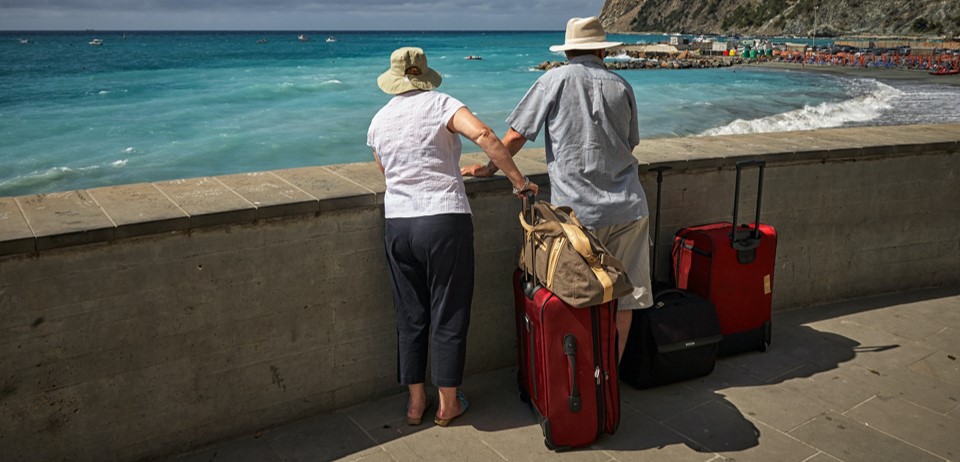Traveller's Immunization
While traveling, it is necessary to take precautionary measures to protect your overall health. Make sure that your are up to date on your routine vaccinations. Aside from the normal, some immunizations may be required for your travel depending on your destination.
Types of Vaccines
Inactivated vaccines - these contain dead or inactive germs which were killed through heat or chemicals. Examples of these vaccines include Diphtheria, Pneumococcal, Tetanus, Hepatitis A and B, Polio, Typhoid, the Flu, Rabies, Whooping Cough, Meningococcus)
Live Vaccines - contain living germs that are attenuated or weakened. Examples of this type are measles, mumps, tuberculosis, chickenpox, and yellow fever.
There are three exceptions to this rule: Yellow Fever, Japanese Encephalitis and Cholera. These vaccines can only be administered in accredited vaccination centers.
Vaccines: Undesirable side effects and contra-indications
Getting immunizations like these can sometimes trigger minor, but harmless reactions to the body. Some of the effects include redness, and spasms on the part where the vaccine was injected. Other effects after vaccinations can include fever, joints pain, body skin rashes and minor headache. Always consult your doctor before the travel and whenever the reaction arises.
If you are pregnant, it is not advised to get normal vaccinations. Discuss with your doctor regarding any possible reactions that may trigger your baby. You can also read the things you should know about travelling while pregant.
If you are planning to take anticoagulants, then thinking that you might have acquire serious allergic reactions, ask your physician for some advise. This is to take precautionary measures or even require you not to take it. If you have other concerns on allergies, here is the things to consider about asthma and allergies before and during the trip.
The Traveller’s vaccinations
It is important to be aware of the recommended vaccination calendar according to your home country’s health policy. Contact your doctor regularly so that he can help keep your vaccination booklet up to date.
The traveller is exposed to nearly all infectious risks that exist in one’s home country but is also exposed to specific risks existing in the intended country of destination and according to the type of intended travel.
Making travel plans presents an opportunity to review your and your children’s vaccination history and coverage with your local doctor. Certain booster shots can be given at this time; other additional vaccinations might also be required. Make your doctor appointments well in advance (at least two months before leaving) because most vaccinations only become effective several weeks after the injection, and some require several injections spread over time.
Required vaccinations, recommended vaccinations
Be sure to check with your doctor and/or local health authorities regarding all obligatory vaccinations when leaving your country of origin. These requirements may differ slightly depending on where you live and where your final travel destination may be.
Whatever vaccinations are not obligatory are in fact “recommended”. These recommendations are strongly advised and it is best to speak with your doctor about each one individually.
Yellow Fever: Regardless of whether or not it is obligatory, this vaccination is strongly recommended for all travellers planning to visit Western and Central Africa or the Amazon region.
Polio: check with your doctor about polio boosters. In many countries, they are recommended every 10 years.
Tetanus: check with your doctor. Tetanus boosters are often given every 10 years and are essential, even for those who do not travel.
Diphtheria: Check with your doctor. Most boosters are given every 10 years.
Hepatitis A: this vaccination is recommended for children over one year old and for adults under 50 who are travelling to developing countries. For adults over 50, is it advisable to verify their blood condition and immune system before vaccinating them.
Hepatitis B: recommended for all people at risk, medical personnel and those who are required to spend long periods of time in developing countries.
Typhoid Fever: recommended for all people who plan on spending long periods in high-risk areas (rural India, Africa, Latin America) and immigrant peoples originally from these countries/regions who are returning on holiday to visit their families.
Meningococcal meningitis: The A+C+Y+W135 vaccine is recommended for all people planning an extended stay in risk areas (pilgrimage to Mecca, Burkina Faso, Niger). An A+C and a specific anti-C vaccine also exist.
Japanese Encephalitis: recommended for all those travelling for more than four weeks in rural Asia during epidemic periods.
Tick Encephalitis: Recommended for all those travelling to Central and Eastern Europe and to Eurasia during high-risk periods (April – October).
Rabies: this vaccine is recommended for all walkers and hikers and for those who are exposed to the viral disease via their professions.
The Cholera vaccination will be evaluated case by case during your consultation with an accredited Cholera centre.

















